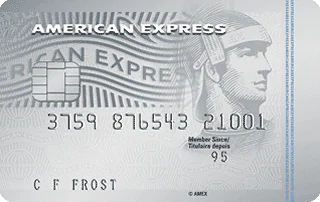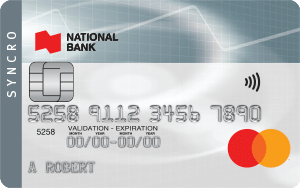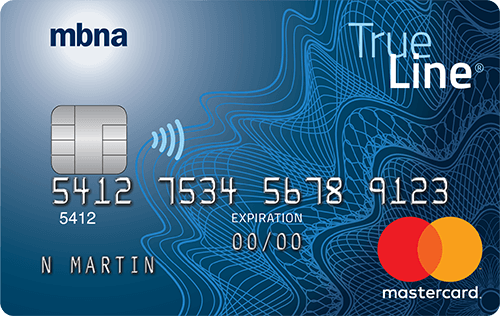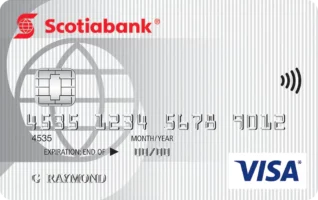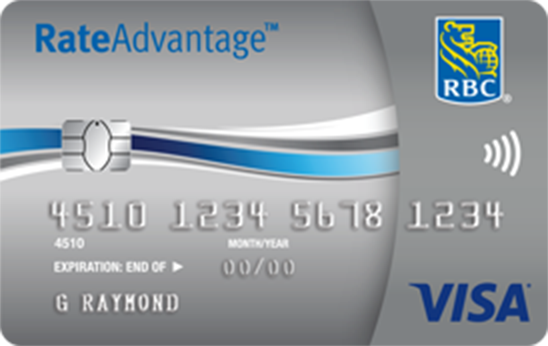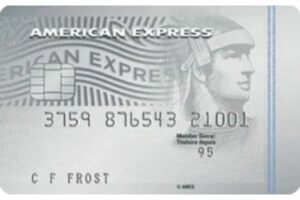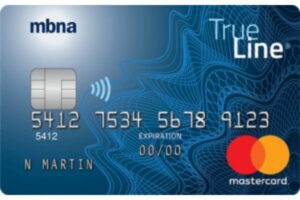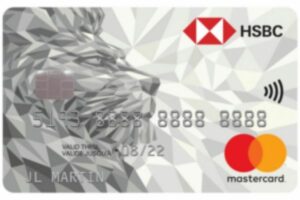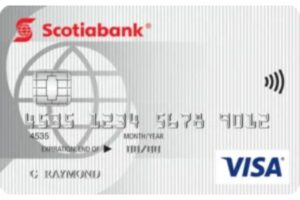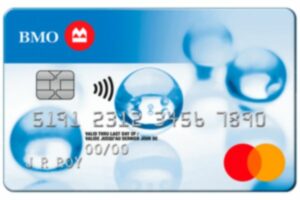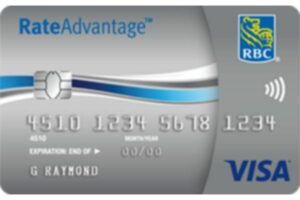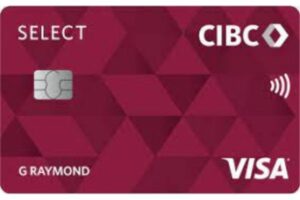Best Low Interest Credit Cards in Canada: Who Takes the Crown?
Avid credit card users can pinpoint the benefits of credit cards instantly. But they can also tell you how damaging high-interest fees can be.
After all, life happens while we’re busy planning, so sometimes we’ll be unable to pay our bill in full and have to carry a balance on our shoulders. Tiresome, right?
If you relate to these struggles, your solution might be a low-interest credit card. And yes, you might skip out on some rewards, but the money saved will soften the blow.
Interested so far? Keep scrolling to discover the best low interest credit cards in Canada!
Top 7 Low Interest Credit Cards: An Overview
American Express Essential™ Credit Card
Another famous credit card with a low interest rate in Canada is the American Express Essential, which comes with no annual fees and an APR of 12.99%.
- Access to American Express Experiences
- Purchase Protection and Buyer’s Assurance Protection
- Fraud Protection Guarantee
Another famous credit card with a low interest rate in Canada is the American Express Essential, which comes with no annual fees and an APR of 12.99%.
NBC Syncro Mastercard
What makes NBC’s Syncro Mastercard stand out from the competition is its significantly lower interest rate. And with so many additional benefits, the degree of savings you would achieve due to the low interest rates is unparalleled.
- Mastercard® ID CheckTM
- Priceless Cities®
- Tap & Go® contactless payments
What makes NBC’s Syncro Mastercard stand out from the competition is its significantly lower interest rate. And with so many additional benefits, the degree of savings you would achieve due to the low interest rates is unparalleled.
MBNA True Line® Gold Mastercard®
This MBNA low-rate credit card is packed with benefits and coveted features. At the forefront is the undeniably surprising standard interest rate of 8.99% for purchase and balance transfer and an annual fee of $39.
- 8.99% interest on purchases and balance transfers
- Purchase assurance and extended warranty benefits
- Emergency services
This MBNA low-rate credit card is packed with benefits and coveted features. At the forefront is the undeniably surprising standard interest rate of 8.99% for purchase and balance transfer and an annual fee of $39.
HSBC +Rewards™ Mastercard®
HSBC +Rewards™ Mastercard®
- 2 Points for every $1 spent on eligible dining and entertainment purchases
- Insurance coverage and price protection service
- Regular special offers
HSBC +Rewards™ Mastercard®
Scotiabank Value Visa
The Scotiabank Value Visa card is the most affordable secured card option with a low annual and interest fee. What's more, Scotiabank even has a promotional interest rate of 0.99% on balance transfers and cash advances during the first six months.
- 0% introductory interest rate on cash advances for the first 6 months
- Scotia Credit Card Protection
- Visa payWave
The Scotiabank Value Visa card is the most affordable secured card option with a low annual and interest fee. What's more, Scotiabank even has a promotional interest rate of 0.99% on balance transfers and cash advances during the first six months.
BMO Preferred Rate Mastercard®
The BMO low interest Mastercard allows cardholders to pay less in interest charges if they carry a balance on their cards. As a result, you’ll benefit from 12.99% APR for purchases and 15.99% for cash advances, alongside a low annual fee of $20.
- Free additional cardholder
- 9-month 0.99% introductory interest rate on balance transfers
- Additional layers of security
The BMO low interest Mastercard allows cardholders to pay less in interest charges if they carry a balance on their cards. As a result, you’ll benefit from 12.99% APR for purchases and 15.99% for cash advances, alongside a low annual fee of $20.
RBC RateAdvantage Visa
This RBC low-rate visa has no annual fees + offers interest rates based on credit score and integrated purchase protection for eligible purchases.
- $0 delivery fees on $12+ orders with a DashPass subscription
- Low variable interest rate
- Personalized offers for great brands
This RBC low-rate visa has no annual fees + offers interest rates based on credit score and integrated purchase protection for eligible purchases.
CIBC Select Visa Card
Welcome offers aren’t common with low interest credit cards, but the CIBC Select Visa goes against the grain with a 10-month interest-free period, a 1% transfer fee, and an annual fee rebate for the first year.
- Generous welcome offer
- Valuable Common Carrier Accident Insurance
- No-fee international transactions with CIBC Global Money Transfer
Welcome offers aren’t common with low interest credit cards, but the CIBC Select Visa goes against the grain with a 10-month interest-free period, a 1% transfer fee, and an annual fee rebate for the first year.
Top Low Rate Credit Cards in Canada
Ready to save some money on interest charges?
We’ve done our due diligence and compiled a list of the best credit cards with low interest in Canada.
Here’s the rundown:
1. American Express Essential Credit Card – Best Overall
- Rating: 10/10
- Interest rate: 12.99% on purchases, cash advances, and balance transfers
- Annual fee: $0
- Minimum Income: N/A
- Recommended credit score: Good
Another famous credit card with a low interest rate in Canada is the American Express Essential, which comes with no annual fees and an APR of 12.99%. And just like other AmEx cards, you’ll gain exclusive access to tickets, virtual events, live performances, etc. with American Express Experiences.
For your purchases, you’ll benefit from coverage like the Buyer’s Assurance Protection Plan and the Purchase Protection Plan. And we can’t forget the 24/7 customer service, Fraud Protection Guarantee, and the American Express SafeKey that enables you to shop more confidently and with an added layer of protection.
Although the AmEx interest rate isn’t the lowest on the Canadian market, the lack of annual fees certainly makes up for it. Besides, you get to be an honorary member of American Express, which is a benefit in its own right.
Pros:
- No annual fees
- Optional travel accident insurance up to $100,000
- Comprehensive American Express App
Cons:
- No rewards or bonuses
- Not accepted everywhere
2. NBC Syncro Mastercard – Best For Annual Savings
- Rating: 9.8/10
- Interest rate: 4% + prime rate or a min. of 8.90% on purchases, 8% + prime rate or a min. of 12.90% on balance transfers and cash advances
- Annual fee: $35
- Minimum Income: N/A
- Recommended credit score: Excellent
What makes NBC’s Syncro Mastercard stand out from the competition is its significantly lower interest rate. However, if you’re in it for the cashback, you should look elsewhere as this credit card excels in different areas, such as:
- Contactless payments – The Tap & Go® technology enables you to spend less time at checkout simply by tapping your card on the reader.
- Purchase protection – Receive comprehensive protection from theft and damage for new purchases for up to 90 days after purchase.
- Extended warranty – Get up to double the manufacturer’s warranty on items purchased with your credit card.
- Secure online purchases – Be protected from fraud by verifying your identity during online shopping by using the Mastercard® ID CheckTM service.
- Fraud protection – By using Mastercard’s Zero Liability policy you won’t be held liable if someone has completed unauthorized transactions with your card.
- Urban experiences – Get room upgrades, access to exclusive menus, and a slew of other surprises with Priceless Cities®.
And with so many satisfactory benefits, the degree of savings you would achieve due to the low interest rates is unparalleled. So sign up for the Syncro Mastercard today!
Pros:
- No minimum income requirements
- Lenient eligibility criteria
- Additional cards at no cost
Cons:
- No travel, vehicle or medical insurance options
- High credit score
3. MBNA True Line® Gold Mastercard® – Best for Emergency Services
- Rating: 9.5/10
- Interest rate: 8.99% for purchases and balance transfers, 24.99% for cash advances (21-day interest-free grace period for new purchases and fees)
- Annual fee: $39
- Minimum Income: N/A
- Recommended credit score: Fair to good
As frontman of the band, this MBNA low rate credit card is packed with benefits and coveted features. At the forefront is the undeniably surprising standard interest rate of 8.99% for purchase and balance transfer and an annual fee of $39.
But the MBNA interest rate isn’t the only admirable aspect of this credit card. In fact, cardholders gain unrestricted access to emergency services in case of card loss and coverage and support internationally. To top it off, the MBNA True Line® Gold Mastercard® comes with purchase assurance, extended warranty benefits, and trip and legal assistance.
And since this is the lowest interest credit card in Canada, you can take advantage of the extra money for Apple Pay and Avis and Budget Rent-A-Car. It’s almost like there’s a discount everywhere you look.
Pros:
- Lowest interest rate credit card
- Lenient eligibility requirements
- Mastercard Contactless and Zero Liability
Cons:
- 24.99% interest on cash advances
- Higher annual fee than competition
4. HSBC +Rewards™ Mastercard® – Best for Rewards/Cashback
- Rating: 9/10
- Interest rate: 11.99% on purchases, cash advances, and balance transfers (21-day interest-free grace period on new purchases and fees)
- Annual fee: $25 (first year waived)
- Minimum Income: None
- Recommended credit score: Fair to good
The HSBC +Rewards credit card has ramped up the catalogue of benefits by offering 2 points for every $1 spent on eligible dining and entertainment purchases and 1 point for every $1 on all other everyday purchases.
Apart from having some of the best credit card interest rates on the market with 11.9% across all rate types, this Mastercard regularly provides special offers to cardholders. For example, for applications until February 28, 2023, you’ll earn 35,000 points and a full annual fee rebate for the first year, and that’s only just the beginning.
The below-average rates are coupled with comprehensive insurance coverage and price protection service on eligible purchases, along with Apple Pay, Tap&Go, and Zero Liability protection. To sweeten the pot, HSBC Rewards includes a Chip&PIN technology to reduce theft.
Pros:
- Consistent rates for purchase, transfer, and cash advance
- $200 travel value offer for Quebec residents, $175 for residents of other provinces
- Gift cards and other valuable merchandise
Cons:
- $10 per card for authorized users
- Low base earn rate compared to other rewards cards
5. Scotiabank Value® Visa* Card – Best for Value
- Rating: 9/10
- Interest rate: 12.99% on purchases, cash advances, and balance transfers (introductory 0% cash advance rate for the first 6 months)
- Annual fee: $29 (first year waived)
- Minimum Income: $1,000 gross monthly income
- Recommended credit score: Fair to good
Next on our list is the first-year no fee Scotiabank Value® Visa* card that enables you to save up to hundreds of dollars annually on interest. Especially with the 0% introductory interest rate on cash advances for the first 6 months. After that, you’re looking at 12.99% on all interest types, along with a minimum credit limit of $500.
After the first year is up, the Scotia bank Value Visa charges $29 in annual fees and provides supplementary cards for free. Additionally, you can use the Visa payWave for quick and convenient checkouts and save up to 25% off base rates at participating AVIS and Budget Rent-a-Car locations in Canada and the US.
Regarding insurance, you can pick between 2 coverage bundles, the basic and comprehensive protection packages, where the latter covers almost everything under the sun.
Pros:
- No annual fee for the first year
- Low APR
- Interest-free grace period
Cons:
- Lacks tangible perks
- Doesn’t earn rewards
6. BMO Preferred Rate Mastercard – Best for Smaller Purchases
- Rating: 8.7/10
- Interest rate: 12.99% for purchases, 15.99% for cash advances (0.99% introductory interest rate for 9 months and a 2% transfer fee)
- Annual fee: $20 (first year waived)
- Minimum Income: N/A
- Recommended credit score: Fair to good
The BMO low interest Mastercard allows cardholders to pay less in interest charges if they carry a balance on their cards. As a result, you’ll benefit from 12.99% APR for purchases and 15.99% for cash advances, alongside a low annual fee of $20.
In addition, you can add another cardholder for free and you’ll both enjoy an extended warranty, purchase protection, and 24/7 emergency support worldwide. And if that’s not enough, this BMO low interest credit card provides Zero Liability, a Mastercard Identity Check, and regular alerts to confirm transactions.
BMO also has a welcome offer of a 0.99% introductory interest rate on balance transfers in the first 9 months and a 2% transfer fee. To sweeten the pot, they’ll also waive the annual fee for the first year. You just can’t lose!
Pros:
- Beneficial welcome offer
- First-year annual fee waiver
- Insurance packages included
Cons:
- No rewards on purchases
- Lacklustre perks
7. RBC RateAdvantage Visa – Lowest Rates
- Rating: 8.6/10
- Interest rate: 4.99% – 8.99% (varies depending on credit score)
- Annual fee: $0
- Minimum Income: N/A
- Recommended credit score: Good to excellent
The RateAdvantage Visa by RBC has staggeringly low interest rates from 4.99% to 8.99% for purchases and cash advances for no annual fee. In fact, RBC has outdone itself with the low variable rates and the added Purchase Security and Extended Warranty Insurance, proving to be a wise financial decision for many Canadians.
For every cardholder, there are personalized offers from great brands that allow you to get cash savings and earn excellent bonuses. This RBC low rate visa also helps you save 3¢/L on fuel and earn 20% more Petro-Points at Petro-Canada.
And if you want more tangible perks, unlike other cheap credit cards, RateAdvantage earns you 50 Be Well points for every $1 spent on eligible products at Rexall and $0 delivery fees from DoorDash for 3 months.
Pros:
- Lowest interest rates on the market
- Free additional cardholders
- Fuel and wellness savings
Cons:
- Limited perks and rewards
- High foreign transaction fees
8. CIBC Select Visa Card – Best for Balance Transfers
- Rating: 8.5/10
- Interest rate: 13.99% for purchases, balance transfers, and cash advances (10-month interest-free grace period for purchases, 1% for balance transfers)
- Annual fee: $29 (waived in the first year)
- Minimum Income: $15,000 annual household income
- Recommended credit score: Fair to good
Welcome offers aren’t common with low interest credit cards, but the CIBC Select Visa goes against the grain with a 10-month interest-free period, a 1% transfer fee, and an annual fee rebate for the first year.
After the promotional period ends, cardholders will continue to reap the benefits with a $29 annual fee and interest rates of 13.99% for purchases, balances, and cash advances. On top of that, you’ll gain access to Common Carrier Accident Insurance, fuel savings at Pioneer, Fas Gas, Ultramar, and Chevron stations, and free international transactions.
If you’re still looking for more, you also have Visa’s Zero Liability Policy, consistent fraud alerts, and a Digital Disputes Platform for unauthorized transactions. By using the CIBC Mobile Banking App, you can manage your card online and report it missing or stolen.
Pros:
- Excellent welcome offer
- $100,000 in Common Carrier Accident Insurance
- No annual fee for up to 3 additional cards
Cons:
- Other insurance packages are optional
- Interest rates higher than competitors
Credit Card Interest 101
Now that you’ve got information on the best low interest credit cards on the market, let’s talk about interest rates in a bit more depth.
So what’s an interest rate anyway?
Essentially, a credit card’s interest rate is the price you pay for borrowing money from the credit card company. Thus, each month, you’re required to pay the balance back.
This number is typically expressed as an Annual Percentage Rate (APR), which fluctuates with a benchmark, like the prime rate. Some credit cards charge different interest rates for purchases, cash advances, and balance transfers, which further complicates the matter.
Currently, the average APR is 19.99%, but as you saw, not every card follows the trend, as there are also 0% APR credit cards in Canada. And most of the time, the interest rate you get will depend on your financial institution, the type of transaction you make, and your credit score.
To sweeten the pot, many issuers include an interest-free grace period that starts on the last day of your billing period on your credit card statement, but it doesn’t usually apply to cash advances, cash-like transactions, and balance transfers.
Types of Interest Rates
As we briefly mentioned, there is no one type of interest rate. Instead, there are 3, depending on the type of transaction:
- Purchase rates refer to the interest applied to regular purchases made with your credit card. The purchase rate is added to your unpaid purchase balances at the end of the billing cycle, but not to other incurred charges.
- Cash advances are applied to the amounts you withdraw from an ATM against the cash advance line of your credit card. Generally, these rates are higher than the purchase rates and don’t include any grace periods.
- Balance transfers come into play when you transfer a balance from one card to another. If the other card’s issuer charges a different interest rate, you’ll need to pay a balance transfer rate, which may be the same or higher than your purchase.
So, the cheapest credit card will generally be the one that has the lowest interest rates in all 3 categories. That way, you’re saving money in 3 ways and aren’t left flabbergasted when your statement arrives.
Factors to Keep in Mind
When choosing low rate credit cards, there are factors you should consider. After all, just because 2 credit cards have the same interest rates, it doesn’t mean they offer the same benefits.
Here’s what you should take into consideration:
- Annual fees are prevalent among credit card issuers. For lower-rate cards, the fees won’t break the bank, but it’s still imperative that you know how much your finances can handle. If you don’t want the added hassle of paying a price annually, you should opt for a card with no annual fees.
- Rewards and perks might drive many users over the edge and encourage them to choose a credit card with tangible benefits. If this is important to you, look for credit cards that provide cashback on everyday purchases. And if you’re a frequent traveller, get a card that covers travel and car insurance.
- Your credit score enables you to get a better interest rate and an overall deal on your credit card. Namely, if you have good credit, financial institutions will give you a lower interest rate or a grace period. On the other hand, if your credit score is subpar, you might get a higher rate or less favourable terms.
- Minimum income requirements are present in every credit card application. The credit card issuer wants to ensure you can keep up with your payments and can pay off your balances. For credit cards with great rewards systems, the minimum income is usually on the higher end, while cheaper cards generally have low requirements.
Although this is not a comprehensive list of factors, it will give you a good starting point. However, you should focus on things you personally deem important and compare them among several credit cards to make sure you’re getting the best deal possible.
Eligibility Requirements and Application Process
Fortunately, a credit card application is relatively straightforward and shouldn’t cause any headaches. But before applying, you should observe whether or not you’re eligible for the card you want and if you can shoulder the financial burden in the first place.
For most credit cards, you’ll need to:
- Be of the age of majority in your province or territory
- Be a Canadian citizen or resident
- Have a good credit score
- Not have filed for bankruptcy in the past 7 years
- Meet the minimum annual income requirement (if applicable)
Although the criteria change depending on the issuer and the credit card you’re applying for, the requirements above are generally present everywhere.
After determining that you’re eligible and before proceeding with the application process, you’ll need to have your basic personal information at hand, such as:
- Name
- Date of birth
- Social insurance number (SIN)
- Home address
Apart from this, a credit card issuer might also ask for your:
- Employment status (current job and how long you’ve worked there)
- Monthly income by sources
- Details of other credit cards
- Details of debts or additional monthly obligations like loans
After handing over this information, the issuer will conduct a hard credit inquiry. Therefore, you’ll need to authorize them to run a background check on you. Then, the issuer will have a copy of your credit report and history and can decide on your rates and terms.
Benefits and Drawbacks of Low-Interest Credit Cards
To some, Canadian low-interest credit cards seem like the perfect solution. But alas, for every pro, there’s a con.
As you can see, credit cards with low interest rates are ideal if you tend to carry a monthly balance. Some other positives include:
- Saving money on interest payments – depending on the rate, some credit cards may cut your monthly payments in half.
- Lower annual fees – low-interest credit cards almost never come with annual fees higher than $30, compared to the $120 or $150 attached to some rewards cards.
- Paying off current credit card debt – the interest rates on low-interest credit cards don’t have a restricted time period for transferring your debt.
However, it’s not all sunshine and rainbows, as these credit cards also come with:
- No or few rewards – such credit cards don’t usually provide benefits and rewards, but if they do, they’re highly limited and don’t reward your spending accordingly.
- Fees for balance transfers – most cards with low interest will charge you a fee on all balance transfers, usually around 1% to 5%.
- High cash advance rates – a low-interest credit card will come with high rates for cash advances to balance it out, which could rack up quickly.
In the end, it all comes down to what floats your boat. For some, the pros will far outweigh the cons, but for others, it can cause financial strife.
FAQ
Purchase interest is an interest charge you get on purchases you’ve made with your credit card but didn’t pay in full. If you don’t pay off the unpaid balance at the end of your billing cycle, the rate is then applied to the total balance you owe.
The interest rate on a credit card signifies the price you pay for borrowing money. Usually, this is a yearly rate for credit cards and goes by the name of Annual Percentage Rate or APR. The average credit card interest rate is 19.99%, but there are cards with more or less interest on the market.
If you’ve maintained good credit, a clean payment history, and have paid off your debt, you can usually negotiate a lower interest rate for your credit card, But if you’re already using your high-interest credit card, you might want to look into transferring your balance to a card with a lower interest.

